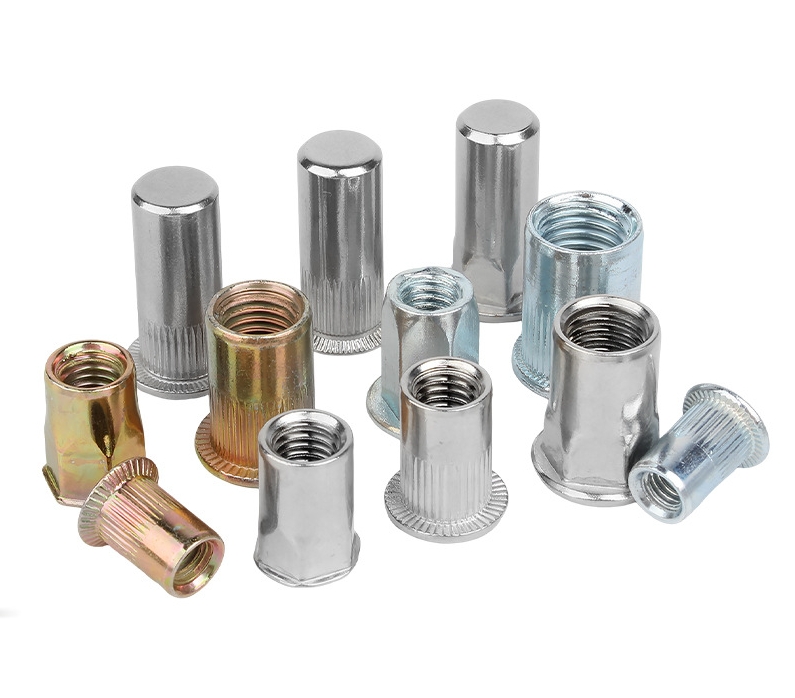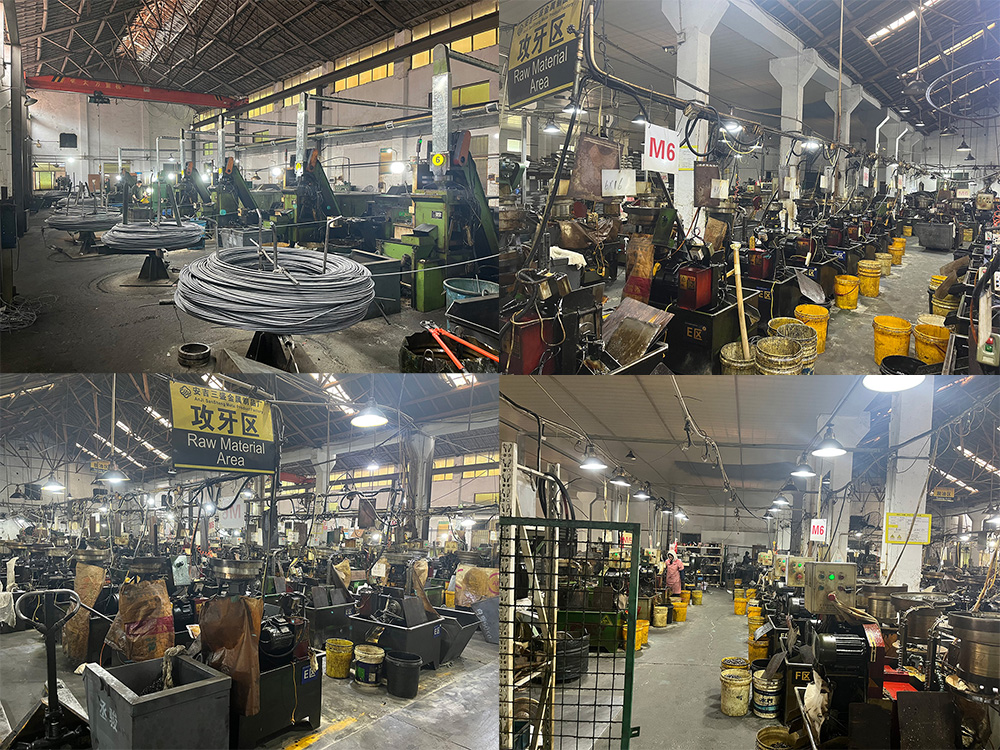Key Parameters Affecting the Strength of Rivet Nuts
Rivet nuts, also known as blind nuts or threaded inserts, play a vital role in thin-sheet fastening applications. The overall strength and stability of a rivet nut depend on multiple parameters, from material composition to installation precision. Understanding these factors is essential for ensuring long-term fastening reliability.
As a professional rivet nut supplier, XINCHI is pleased to introduce the key parameters affecting the strength of rivet nuts.

Rivet Nut Material Determines Basic Strength
The material strength of a rivet nut is the foundation of its load-bearing performance.
Common materials include carbon steel, stainless steel, and aluminum alloy rivet nuts:
- Carbon steel rivet nuts offer high tensile and shear strength, ideal for structural and mechanical applications.
- Stainless steel rivet nuts provide superior corrosion resistance for outdoor or marine environments.
- Aluminum rivet nuts are lightweight and suitable for electronics, furniture, and automotive interiors.
A properly selected rivet nut material ensures balanced performance between strength, weight, and corrosion resistance.
Rivet Nut Wall Thickness and Thread Precision
Wall thickness and thread quality are critical for maintaining torque and pull-out resistance.
If the rivet nut wall is too thin, deformation or thread stripping may occur during tightening.
To achieve stable installation performance, thread accuracy should reach grade 6H or higher, ensuring smooth engagement and even stress distribution.
At Xinchi, precision cold heading and re-tapping processes guarantee high thread concentricity and stability for all rivet nut products.
Rivet Nut Grip Range and Deformation Control
Each rivet nut model has a specific grip range that defines the allowable thickness of the base material.
If the workpiece thickness is beyond this range:
- Too thin: insufficient deformation, leading to weak anchoring;
- Too thick: incomplete bulging, reducing holding strength.
Choosing the right rivet nut grip range ensures proper deformation and firm mechanical interlock with the parent material.
Rivet Nut Installation Force and Torque Settings
The installation force or setting torque directly affects rivet nut strength.
If the pull force is too low, the rivet nut will not fully expand.
If excessive, it may crack or deform the base material.
Recommended torque ranges (for reference):
- M4: 8–10 kN
- M5: 10–12 kN
- M6: 12–16 kN
- M8: 18–22 kN
Proper rivet nut installation torque ensures uniform deformation and optimal clamping force.
Rivet Nut Hole Size and Surface Quality
Accurate hole diameter and clean hole walls are key to consistent rivet nut performance.
Oversized holes reduce grip and lead to rotation, while undersized holes cause scratching or incomplete insertion.
To maximize rivet nut pull-out strength, the hole diameter tolerance should be within ±0.05 mm, and the surface should be free of burrs, rust, or oil contamination.
Rivet Nut Surface Treatment and Corrosion Resistance
The surface coating not only protects against corrosion but also stabilizes friction during installation.
Common treatments include:
- Zinc plating – economical and widely used;
- Nickel plating – provides excellent wear resistance;
- Dacromet coating – ideal for automotive or outdoor components;
- Passivated stainless steel – for long-term durability.
Xinchi’s automated coating lines ensure uniform rivet nut finishes with consistent salt-spray resistance.
Rivet Nut Installation Tools and Methods
The reliability of rivet nut installation depends heavily on the matching tool and torque control.
Different rivet nut tools — manual, pneumatic, or electric — require proper adjustment according to nut size and material.
Using torque-adjustable rivet nut guns guarantees a stable setting force and prevents over-tightening.
Rivet Nut Performance in Harsh Environments
Environmental factors such as vibration, temperature, and humidity affect long-term performance.
For vibration-prone applications (automotive, heavy machinery), use knurled rivet nuts or hex body rivet nuts for extra anti-rotation performance.
Applying thread-locking adhesive or lock washers can further enhance reliability.
Xinchi Fasteners: Your Trusted Rivet Nut Manufacturer
As a professional rivet nut manufacturer and supplier, Xinchi Fasteners delivers consistent quality and performance:
- Over 102 cold heading machines, with daily output exceeding 10 million pieces;
- Advanced internal thread forming and re-tapping equipment for precise threads;
- Comprehensive salt-spray, torque, and pull-out testing;
- Custom production available in carbon steel, stainless steel, and aluminum.
- Fully automated zinc and Dacromet plating lines ensure excellent corrosion resistance.

Xinchi is a trustworthy fastener company, especially in furniture nuts. We have a factory that was founded in 2007. We are the designated fastener supplier to“STAPLE”. As a trusted fastener supplier, XINCHI offers a wide range of high-quality fasteners, including nuts, screws, bolts, rivets, and washers.
Xinchi is committed to providing durable, high-precision rivet nuts that guarantee strong and stable connections for every industry. If you would like to learn more about fasteners or are interested in purchasing wholesale fasteners, please don’t hesitate to contact us. Our experienced and expert service team will reply as soon as possible.

